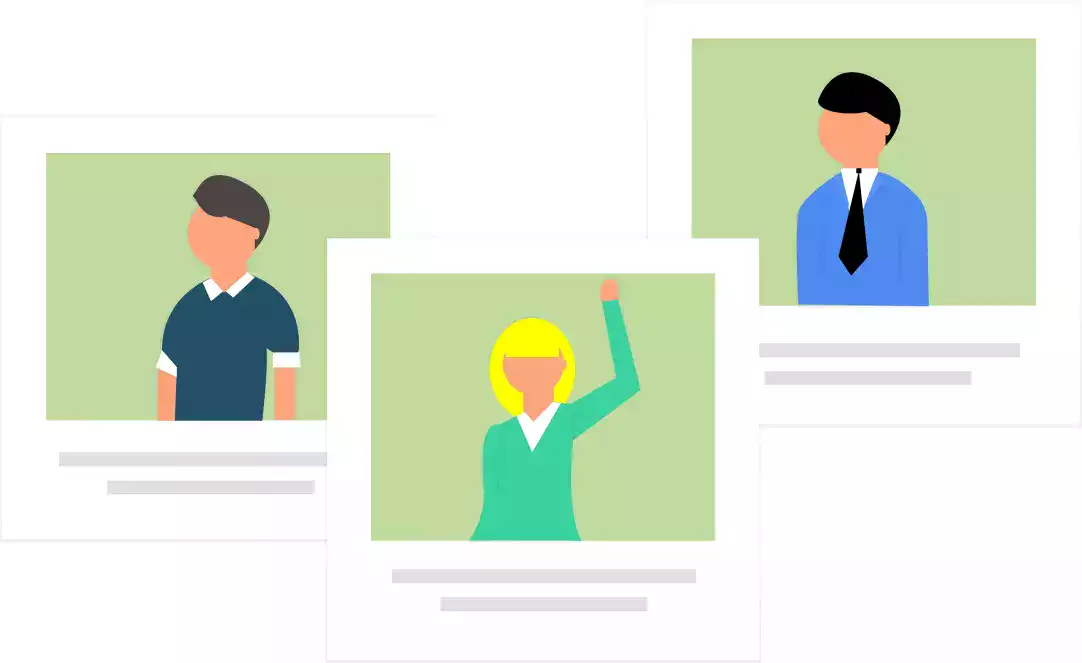Select a date and time slot to book an Appointment
Date Of Appointment

**Wolif Organization** In today’s world, where capitalism and profit-driven ventures dominate the business landscape, the existence of non-governmental organizations (NGOs) offers a refreshing alternative. Unlike private limited profit-making companies, Wolif Organization is a non-denominational initiative founded on October 19th, 2022, by three dynamic individuals. Wolif NGO operates with a distinct purpose and serves as catalysts for positive and impactful social change. As we collaborate with other NGOs, we aim to offer an insider's account of why we hold significant value in society and strive to elucidate the reasons behind the existence of organizations like ours, contrasting them with profit-centric ventures. Have you ever seen a problem and wanted to do something about it? Of course, you have. The education system, community, police, government, welfare office, mosque, church—none seem to address your concerns or take action. Wolif is a powerful way to effect change. We advocate for human rights and environmental protection, democracy and peacebuilding, youth development, women's leadership, work to end violence against women and children, assist the poor, and much more. Non-governmental organizations, like Wolif, are independent of both the government and the business sector. Their mandate is to promote the public interest and serve the common good rather than to prioritize profit for a narrow group or individuals. This independence enables them to monitor government performance and advocate for improvement. Wolif NGO, respected by both government and the business sector, can help mediate conflicts and find resolutions to common concerns. Their independence from government, political parties, and religious institutions allows them to create a shared vision for our community. **Steps in Starting and Operating an Organization:** - Starting and sustaining - Values, vision, and mission: the compass - Planning, evaluating, and managing - The board of directors - Community participation and empowerment - Partnerships with other NGOs and Government - The Funders: Foundations, corporations, individuals **Humanitarian Focus:** Wolif NGOs are primarily driven by the desire to address social, environmental, and humanitarian issues. Unlike profit-making companies, their main objective is not to generate financial gains for their shareholders or owners. Instead, Wolif NGOs aim to improve the well-being of communities, protect the environment, promote human rights, and address other pressing global as well as local challenges. This humanitarian focus allows Wolif NGOs to be flexible, adaptable, focused, and responsive to the needs of society and the people they serve. **Independence and Sovereignty:** While private limited companies are accountable to their shareholders and often prioritize profit maximization, Wolif NGOs are typically independent entities. Self-sufficient and autonomous, they are not obligated to the demands of shareholders or the pursuit of financial gain. This independence allows Wolif NGOs to operate with autonomy, pursuing their mission and values without compromising their integrity or purpose. It enables them to make decisions based on the best interests of the communities they serve rather than being solely driven by profit motives. **Grassroots Engagement:** Wolif NGOs have a distinctive ability to engage with local communities and grassroots organizations. They work closely with individuals, civil society groups, and marginalized communities, building strong networks and understanding the needs of the people they serve. This grassroots approach ensures that Wolif NGOs can implement sustainable and long-term solutions grounded in the reality of the communities they work with. By involving local stakeholders, Wolif NGOs nurture a sense of ownership and empower communities to drive change from within. **Advocacy and Public Policy:** One of the crucial roles of Wolif NGOs is advocacy and public policy engagement. They act as advocates for marginalized groups, championing their rights and highlighting social injustices. Wolif NGOs work closely with governments, international organizations, and other stakeholders to influence public policies and bring about systemic change. They serve as the voice of the voiceless, advocating for inclusive, equitable, and sustainable development. In contrast, private limited companies focus primarily on their own business interests and may not engage in such advocacy efforts, although they often fund NGO programs due to their connections with communities and understanding of their actual needs. **Philanthropic Patronage:** Wolif NGOs rely on philanthropic support from individuals, corporations, and foundations to fund their activities. These donations are driven by a desire to make a positive impact on society rather than expecting financial returns. By contributing to NGOs, individuals and organizations can align their resources with causes they believe in, fostering a sense of collective responsibility and enabling social progress. This philanthropic support allows NGOs to focus on their mission without the constraints of profit-driven financial models. While private limited profit-making companies play a vital role in the economy, Wolif NGOs offer a distinct and invaluable contribution to society. Their humanitarian focus, independence, grassroots engagement, advocacy efforts, and reliance on philanthropic support enable them to address pressing social and environmental issues without being solely driven by financial gains. The organization's existence is a testament to our collective commitment to a more equitable, just, and sustainable world. As we navigate the challenges of the 21st century, it is crucial to recognize and support the vital role NGOs play in shaping a better future for all. **Our Vision:** A society in which all people are safe in their homes, schools, and communities, treated with respect and dignity, and have equal opportunities to develop and activate their leadership abilities. **Conflict Resolution and Peacebuilding:** Wolif seeks to address the underlying causes of conflict, helping people to resolve their differences peacefully and lay the foundations to prevent future violence. Violence affects everyone, preventing communities from developing, hindering children's education, and impeding access to healthcare. Poverty further exacerbates conflict, creating a cycle of violence. Peacebuilding involves encouraging dialogue, repairing relationships, and reforming institutions. For lasting change, everyone affected by conflict must be involved in the peacebuilding process. Wolif works side-by-side with affected communities, providing connections, developing skills, and empowering them to drive change. By working in partnership, Wolif helps build peaceful and inclusive societies. **Democracy Building:** In today's world, civil societies remain vibrant, driven by people's belief in solving issues and building a better democratic society. The imagination, engagement, and actions of organizations like Wolif constitute the cultural aspect of civil society. Central to this cultural aspect is the building of a "culture of democracy," including normative values, individual interpretations, and interaction norms. This culture shapes civic actions, alters political and social processes, and is the soul of modern civil societies. Wolif advocates for non-violence and the rights of women and children, aiming to empower them and create a fair and financially sustainable society. **Supporting Vulnerable Communities:** Wolif recognizes the need to support hard-to-reach communities by strengthening their resilience. Our efforts focus on providing treatment for malnourished children, supporting out-of-school children, water supply, mental health support, and disarmament mobilization. We aim to prevent suffering and loss of life while developing the resilience of those at highest risk. In regions affected by floods and conflicts, we provide educational materials, food aid, protection support, and emergency supplies. Wolif believes in collective action to shape a better future and urges everyone to contribute to humanitarian support.

Giving rights, freedom to make decisions and strengthening women to stand on their own Women's empowerment (or female empowerment) may be defined in several ways, including accepting women's viewpoints, making an effort to seek them and raising the status of women through education, awareness, literacy, and training. Women's empowerment equips and allows women to make life-determining decisions through the different societal problems. They may have the opportunity to re-define gender roles or...

GOALS To bring up / build a society where youths/children and women’s are spiritually, economically, socially empowered and from poverty society.

: Wolif seeks to address the underlying causes of conflict, helping people to resolve their differences peacefully and lay the foundations to prevent future violence. Violence affects everyone, preventing communities from developing, hindering children's education, and impeding access to healthcare. Poverty further exacerbates conflict, creating a cycle of violence. Peace building involves encouraging dialogue,

VISION To see a society where women/children are spiritual, economically and socially empowered lead in preparing tomorrow leaders today. MISSION To outreach, rescue, rehabilitate, empower demonstrate gods love and instill good values in the lives of orphan children/women in the community. GOALS To bring up / build a society where youths/children and women’s are spiritually, economically, socially empowered and from poverty society. AIMS/OBJECTIVES To identity and assist the wo...
This site was designed with Websites.co.in - Website Builder
We appreciate you contacting us. Our support will get back in touch with you soon!
Have a great day!
Please note that your query will be processed only if we find it relevant. Rest all requests will be ignored. If you need help with the website, please login to your dashboard and connect to support